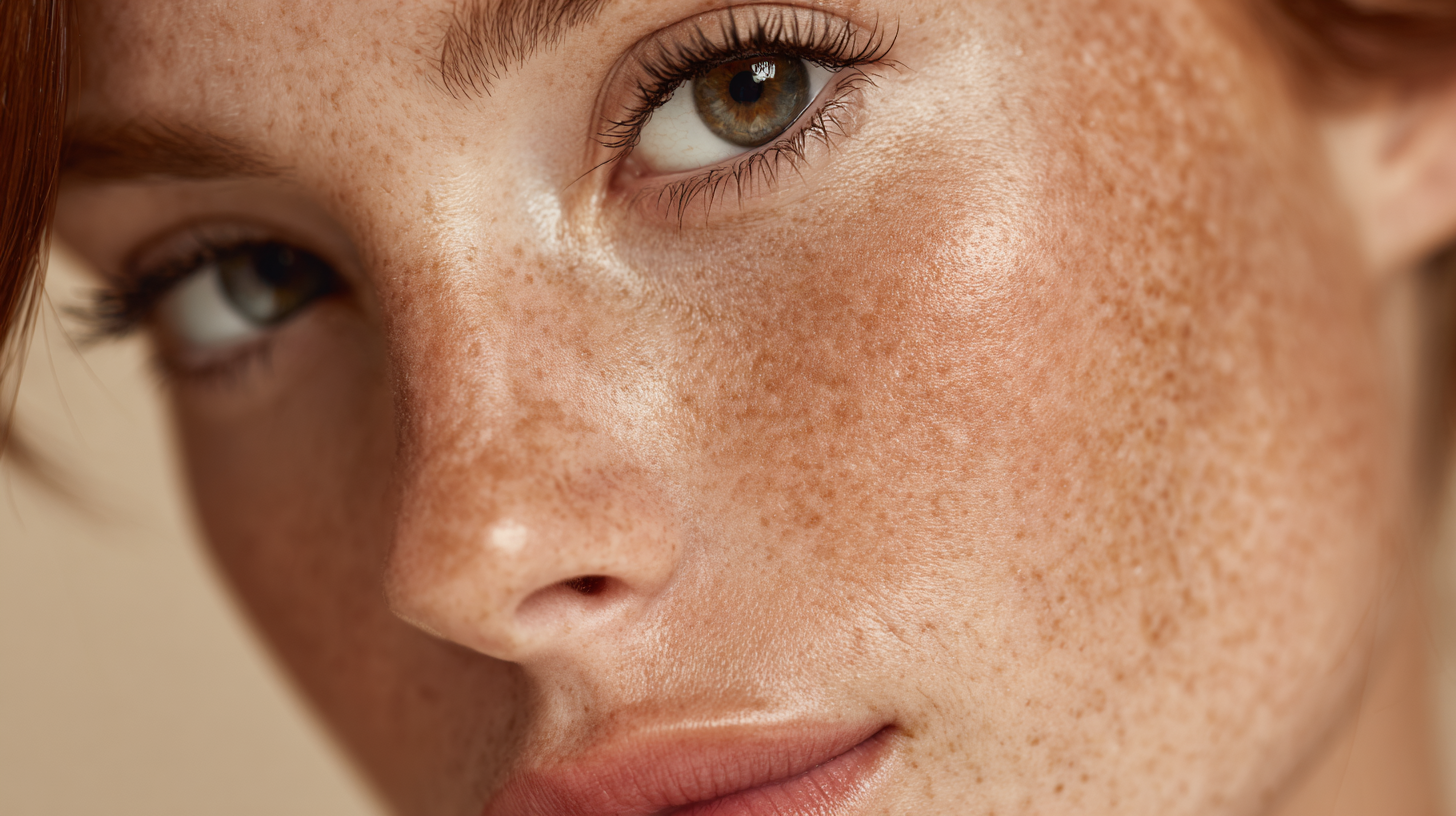ABOUT US
Beaza is a factory specialize in private part mask, serum, shampoo, conditioner, bath gel, eye mask, facial mask, toner, foundation, essential oil, face cream, hand cream, foot cream, body lotion, scrub, hand wash, deodorant, spray, sunblock etc.
Learn More >>SERVICE
Beaza specialized in OEM cosmetics manufacturing. It integrates the whole production procedures of cosmetics: the initial process-ing of raw materials, packaging inspection and sourcing, automated packaging, content filling, and product development.
Learn More >>SKINCARE
In our factory, we offer the private label service to skincare products, which include a wide range of items such as cleansers, moisturizers, serums, masks, sunscreens, and more. We offer flexibility for customers to enter the skincare market without the extensive research, development, and production costs associated with creating products from scratch.
Learn More >>MAKEUP
Private Label Makeup can include various cosmetic items such as foundations, lipsticks, eyeshadows, mascaras, skincare products, and more. It provides flexibility to customers to create your own line of cosmetics without the need for in-house production facilities, allowing you to focus on marketing, branding, and selling the products under your own name.
Learn More >>How to Choose the Perfect Sensitive Skin Foundation for Your International Clients
Table of Contents
- Understanding Sensitive Skin: Key Characteristics and Considerations
- Top Ingredients for Sensitive Skin Foundations: What to Avoid and Embrace
- Color Matching Techniques: Finding the Right Shade for Diverse Skin Tones
- Application Tips: How to Apply Foundation for Sensitive Skin Properly
- Best Foundation Formulations: Our Top Picks for Sensitive Skin Clients
- Client Education: How to Help Your Clients Maintain Their Sensitive Skin
- FAQS
- Conclusion
- Related Posts
Lately, we've seen a real uptick in the demand for Sensitive Skin Foundation. It’s pretty clear that more people are becoming aware of skin sensitivities, and the number of folks with specific skincare needs is growing. I came across a recent report from Grand View Research — they’re saying the global foundation market could hit around $6.25 billion by 2025. And what's interesting is, a big chunk of that growth is coming from products designed specifically for sensitive skin. As consumers get smarter about what they’re looking for—wanting foundations that not only cover but also nourish their unique skin types—brands are gonna need to keep up with this shift.

Here at Guangzhou Beaza Biotechnology Co., Ltd., we totally get what these customers want. We specialize in creating private care, face, and body products, including high-quality foundations for sensitive skin. This post is kind of a guide for international clients, helping them pick out the perfect Sensitive Skin Foundation. The goal? Making sure they meet their clients' unique needs while navigating the tricky world of sensitive skin types — because let’s be honest, it’s not always straightforward!
Understanding Sensitive Skin: Key Characteristics and Considerations
When it comes to sensitive skin, choosing the right foundation isn’t just about shade—it’s really about finding something that won’t cause a reaction. It turns out that about 60% of people experience some kind of skin sensitivity, according to the American Academy of Dermatology. That’s a huge chunk, so it’s super important to pick products carefully. Usually, sensitive skin is more prone to redness, irritation, and drying out easily. Things like pollution, weather, or certain makeup ingredients can make things even worse.
Now, if you’re helping a client with sensitive skin, always look for foundations that are hypoallergenic, fragrance-free, and non-comedogenic. A study in the Journal of Clinical and Aesthetic Dermatology shows that formulas with fewer ingredients and natural extracts tend to be better tolerated. Things like aloe vera and chamomile are great because they help soothe and calm irritated skin. Also, don’t forget about texture—lighter, breathable foundations are often the way to go. Heavy or thick formulas can clog pores and make skin issues worse.
By understanding these little details—like what ingredients help calm sensitive skin and which textures feel comfy—you can really make a difference, especially for clients from around the world with delicate skin. It’s all about making them look good and feel comfortable at the same time.
How to Choose the Perfect Sensitive Skin Foundation for Your International Clients
| Characteristic | Consideration |
|---|---|
| Hydration | Look for foundations with moisturizing ingredients such as hyaluronic acid or glycerin. |
| Fragrance-Free | Choose products labeled as fragrance-free to avoid irritation. |
| Non-Comedogenic | Opt for non-comedogenic formulas that won't clog pores. |
| SPF Protection | Select foundations with built-in SPF for daily sun protection. |
| Mineral Ingredients | Consider mineral foundations, as they are often gentler on sensitive skin. |
| Shade Selection | Offer a variety of shades to match different skin tones globally. |
| Patch Testing | Encourage clients to perform patch tests before full application. |
Top Ingredients for Sensitive Skin Foundations: What to Avoid and Embrace
When you're picking out a foundation for someone with sensitive skin, it really pays to understand the ingredients on the label. I mean, did you know that according to the American Academy of Dermatology, about half of women deal with some sort of skin sensitivity? And often, it’s those sneaky ingredients in cosmetics that make things worse. So, it’s super important to steer clear of harsh stuff like parabens, synthetic fragrances, and sulfates—they can easily cause allergic reactions or irritation, leading to redness and discomfort, especially for folks with delicate skin.
Instead, opting for gentle, nourishing ingredients is definitely the way to go. Foundations made with mineral-based ingredients like zinc oxide and titanium dioxide not only give good coverage but also help soothe the skin. Plus, there’s a study in the Journal of Cosmetic Dermatology that points out how botanical extracts like aloe vera and chamomile can really boost the skin’s ability to tolerate products. They help calm inflammation and keep the skin hydrated, which is exactly what sensitive skin needs. So, by focusing on these safe, skin-loving ingredients and avoiding the irritants, beauty pros can really make a difference for their clients from all around the world.

Color Matching Techniques: Finding the Right Shade for Diverse Skin Tones
When you're choosing the right foundation for clients from around the world, especially those with sensitive skin, understanding how to match colors properly is kind of a big deal. Different regions and cultural backgrounds mean a whole spectrum of skin tones, so you’ve gotta approach shade selection thoughtfully. One handy trick is to look at the undertones—cool, warm, or neutral. Picking up on those subtle hints in a client's skin can really make a difference in how natural their foundation looks. For example, people with cool undertones often have a pinkish or rosy glow, while warm undertones usually lean towards golden or peachy hues. Neutral undertones sit somewhere in the middle, giving you a bit more flexibility with shade choices.
Also, don’t underestimate the power of swatches and shade cards. They’re super useful for getting a more accurate match. And always remember to test the foundation along the jawline—it’s the best spot to see how it’s really going to look. When working with international clients, keep in mind that factors like climate and environment can change how their skin looks. Sun exposure and humidity, for example, can really shift the tone. By blending a good understanding of undertones with some practical tips, you can be pretty confident that your foundation choice will not only match perfectly but also respect your client’s sensitive skin with gentle care.
Application Tips: How to Apply Foundation for Sensitive Skin Properly
When you're applying foundation on sensitive skin, it's super important to use the right technique to get that flawless look without irritating your skin. Start by prepping your face with a gentle, hydrating primer—that way, you create a smooth surface and help the foundation stick better, plus it gives your skin a little boost of moisture. Make sure to pick a foundation formulated specifically for sensitive skin; these usually skip ingredients that tend to cause fuss, like heavy fragrances or preservatives.
Then, grab a clean brush or sponge to put on the foundation. Dabbing it on—kind of like stippling or gently tapping—helps spread it evenly without tugging at those delicate bits of skin. No need to rub it in hard! Just work in light layers and build up coverage little by little. That way, your skin’s natural texture stays looking good, and you’re less likely to get irritation or breakouts. Finish things off with a light dusting of translucent powder to set everything in place. It’ll help your makeup stay put all day without feeling heavy or cakey, especially on sensitive skin.
Honestly, a little patience and the right tools make all the difference, so take your time for the best results!
Best Foundation Formulations: Our Top Picks for Sensitive Skin Clients
When you're picking out a foundation for clients with sensitive skin, the formulation really matters. Sensitive skin tends to react badly to a lot of common ingredients in makeup—things like causing redness, irritation, or breakouts. That's why it's super important to go for foundations that are gentle and hypoallergenic. Keep an eye out for labels like 'fragrance-free', 'oil-free', and 'non-comedogenic'—these are usually safer bets because they’re less likely to cause a reaction and are better suited for delicate skin.

Basically, choosing foundations that cater specifically to sensitive skin makes a huge difference—your clients will feel comfortable, confident, and well looked after.
Client Education: How to Help Your Clients Maintain Their Sensitive Skin
Working with clients who have sensitive skin really calls for some education—it's key to helping them keep their skin healthy and looking good. You know, understanding conditions like rosacea, which a lot of folks deal with, is super important. I often tell clients it’s a good idea to figure out what sets off their flare-ups—whether it’s environmental stuff, certain skincare ingredients, or even what they’re eating. When they get a handle on these triggers, they’re more empowered to avoid those pesky flare-ups and feel a bit more in control.
A few tips I swear by for sensitive skin? Go for fragrance-free products whenever you can, and steer clear of harsh exfoliants—they tend to do more harm than good. It's also worth suggesting they patch test new products, just to be safe. And don’t forget, sticking to a simple, gentle routine with soothing cleansers and moisturizers made for their skin type really makes a difference.
Another thing I emphasize is building a good rapport. When clients trust you and feel comfortable talking openly, things tend to go a lot smoother. Regular check-ins help you stay in the loop about how their skin’s doing, so you can tweak things as needed. At the end of the day, it’s all about making them feel supported and understood on their journey to healthier skin—that’s what really counts.
FAQS
: Sensitive skin is characterized by increased reactivity, redness, and a tendency to dry out easily. It can also be aggravated by environmental factors and certain cosmetic ingredients.
For sensitive skin, it’s important to choose hypoallergenic, fragrance-free, and non-comedogenic foundations, ideally with minimal ingredients and calming natural extracts like aloe vera and chamomile.
Avoid harsh chemicals such as parabens, fragrances, and sulfates, as these can trigger allergic reactions and irritation in sensitive skin.
Gentle, nourishing components like mineral-based ingredients (zinc oxide and titanium dioxide) and botanical extracts (such as aloe vera and chamomile) are ideal for sensitive skin as they provide soothing properties.
Clients should identify their skin triggers, choose fragrance-free products, avoid harsh exfoliants, and establish a consistent skincare routine that includes gentle cleansers and moisturizers.
Educating clients helps them understand their skin conditions, recognize triggers, and manage flare-ups effectively, leading to better overall skin health.
It is recommended to patch test new products before applying them to the entire face to minimize the risk of adverse reactions.
Professionals can enhance the client experience by building trust, maintaining open communication, and conducting regular follow-ups to adjust their skincare regimen as needed.
Conclusion
When you're trying to find the perfect foundation for clients with sensitive skin, whether they're local or from anywhere around the globe, it’s really important to get what makes sensitive skin tick—things like dryness, redness, or irritation. Picking the right one isn’t just about slapping on makeup; it’s about really thinking through the ingredients. You wanna go for formulas that steer clear of harsh chemicals and are packed with calming ingredients instead. In this blog, I’ll share some tips on color matching to suit all different skin tones, plus handy application tricks to help your clients achieve that flawless look without causing more irritation.
We also shine a spotlight on the best foundation options for sensitive skin—because that’s kind of our thing here at Guangzhou Beaza Biotechnology Co., Ltd. We’re all about crafting top-quality skincare solutions. By teaching your clients how to care for their sensitive skin and helping them pick out the right foundation, you’re not just improving their looks, but also boosting their confidence and comfort. It’s all about making sure they walk out feeling and looking radiant, with skin that feels good too.
Related Posts
-

Understanding the Benefits of Lash Sensational Mascara for Global Buyers
-

Exquisite Cream Foundations Made in China for Global Market Leaders
-

Advantages of Choosing the Right Blusher Supplier for Your Beauty Brand
-

Future Ready Beauty Innovations The Comprehensive Guide to Colourpop Brow Pencil Excellence
-

Embracing the Essence: What Lies Ahead for Natural Blush Innovations
-

Top Strategies for Sourcing the Best Loose Powder Highlighter for Global Markets
Blog Tags:










